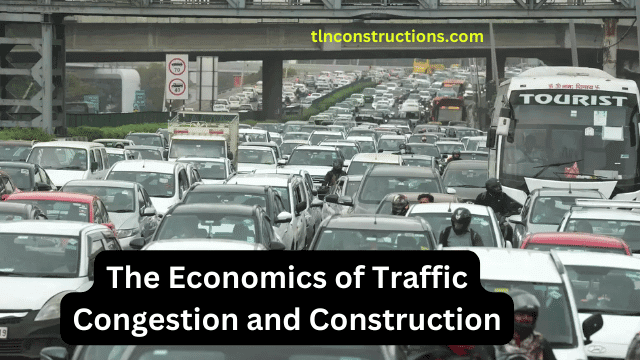Are you tired of being stuck in traffic? Do you often find yourself frustrated with the never-ending construction on highways and roads? If so, you are not alone. Traffic congestion and construction have a significant impact on our daily lives and the economy. In this article, we will explore the economics of traffic congestion and construction, how it affects our daily lives, and the solutions that can help alleviate the problem.
Introduction
Traffic congestion and construction have become a major issue in most cities worldwide. According to a report by the Texas A&M Transportation Institute, the average American commuter spends 54 hours per year stuck in traffic, resulting in a total of $88 billion lost in fuel and productivity. Additionally, road construction can cause further delays and detours, leading to more frustration and longer commutes.
The root cause of traffic congestion and construction is the growing population, urbanization, and an increase in the number of cars on the road. As cities continue to expand, the existing infrastructure struggles to accommodate the growing demand for transportation. The result is slow-moving traffic, longer commutes, and reduced productivity.
The Impact of Traffic Congestion and Construction on the Economy
The impact of traffic congestion and construction on the economy is significant. The time and productivity lost due to traffic congestion and construction result in an estimated loss of $160 billion annually in the United States alone. Here are some of the ways traffic congestion and construction affect the economy:
Reduced Productivity
Traffic congestion and construction lead to a significant reduction in productivity. Workers who spend hours stuck in traffic or taking detours due to construction arrive at work stressed and tired, reducing their productivity. This reduced productivity can impact a company’s bottom line, resulting in lower profits.
Increased Fuel Costs
Traffic congestion and construction also result in increased fuel costs. Cars stuck in traffic burn more fuel, resulting in higher costs for commuters. Additionally, construction often leads to detours and longer routes, resulting in even higher fuel costs.
Environmental Impact
Traffic congestion and construction have a significant environmental impact. The increase in cars on the road and the associated carbon emissions contribute to air pollution, leading to health problems and environmental degradation. Additionally, construction can lead to the destruction of natural habitats and ecosystems, leading to further environmental damage.
Solutions for Traffic Congestion and Construction
While traffic congestion and construction are significant problems, there are solutions that can help alleviate the problem. Here are some of the solutions that can help reduce traffic congestion and construction:
Public Transportation
One of the best ways to reduce traffic congestion is by promoting public transportation. Investing in public transportation infrastructure, such as buses and trains, can help reduce the number of cars on the road, reducing traffic congestion and the associated problems.
Smart Traffic Management
Smart traffic management systems can help reduce traffic congestion by providing real-time traffic information and using algorithms to optimize traffic flow. These systems can also adjust traffic signals based on traffic flow, reducing the time spent waiting at red lights.
Construction Planning
Better construction planning can help reduce the impact of construction on traffic flow. By scheduling construction during off-peak hours and using alternate routes, construction-related traffic congestion can be minimized.
